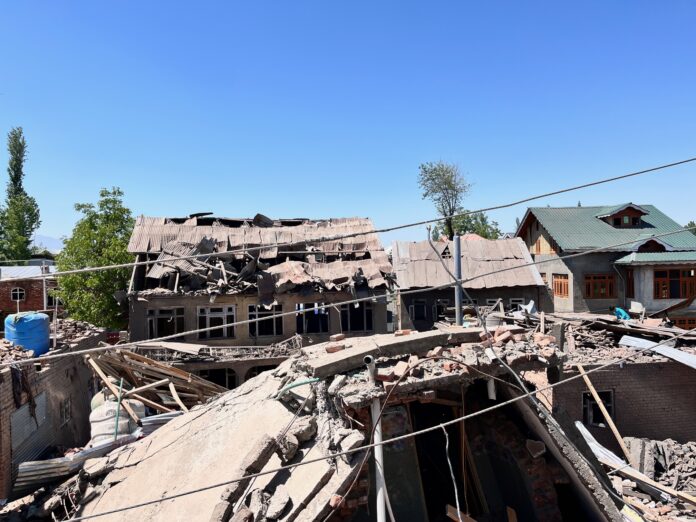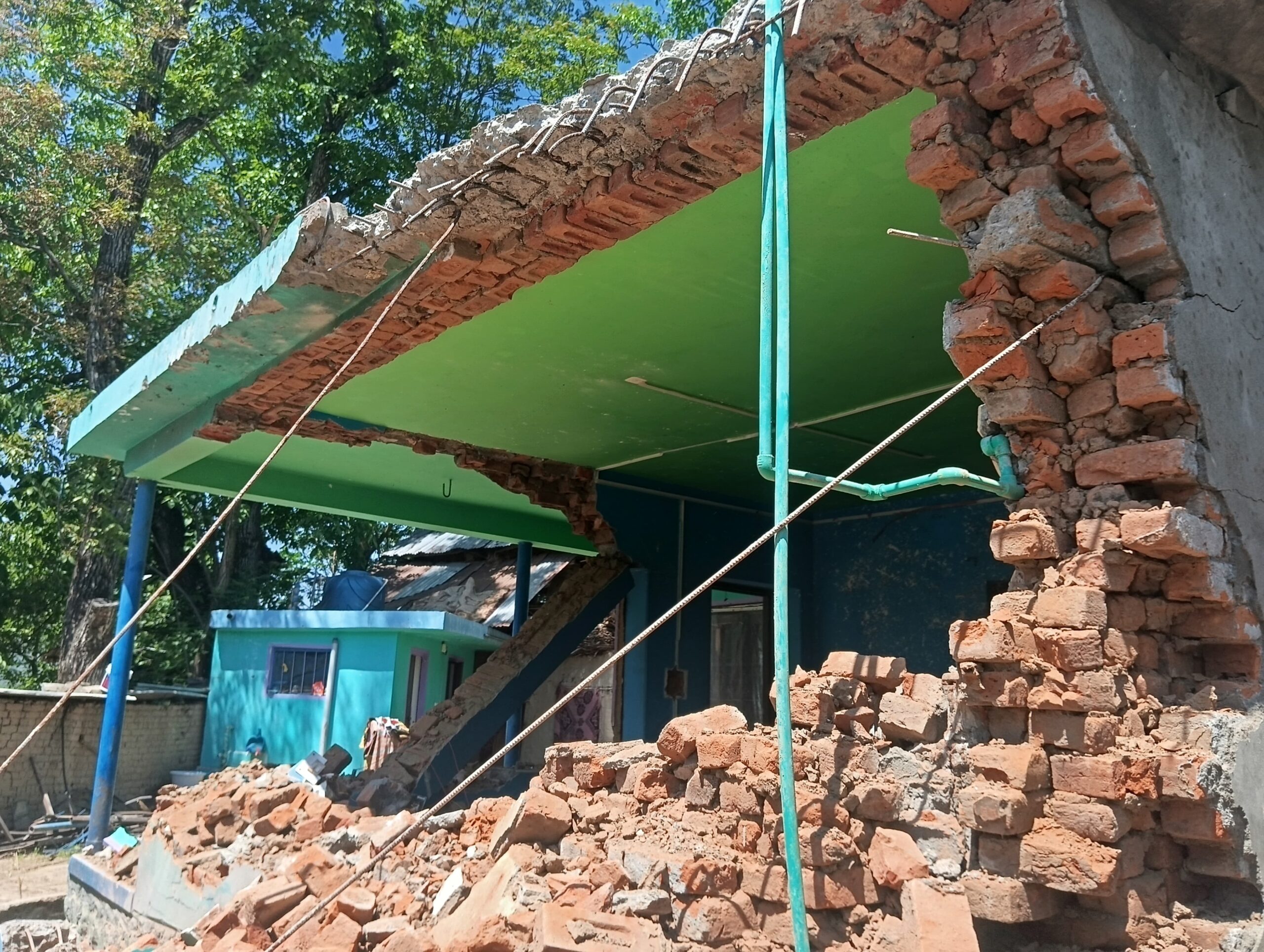
Arsheed Ahmad, TwoCircles.net
Srinagar (Jammu and Kashmir): Following a deadly terrorist attack in Pahalgam that left 26 people dead, the Army launched a series of search operations across South Kashmir.
One of the first villages targeted was Muran in Pulwama district, where multiple homes were destroyed and dozens of residents displaced.
The April 22 attack at Baisaran meadow, a popular tourist destination, was the deadliest against civilians in Jammu and Kashmir in over a decade. The attackers opened fire on a group of tourists, most of whom were Hindu men. The central government has blamed Pakistan for supporting the group allegedly behind the massacre. Pakistan, in response, denied any involvement and called for an independent international investigation.
The Indian Air Force carried out precision strikes in the intervening night of May 6 and 7 in Pakistan on nine locations and claimed to have destroyed terrorist infrastructures in Pakistan and Pakistan-occupied Kashmir. The attack has resulted in several casualties and infrastructure destruction.
On the evening of April 24, the Army cordoned off Muran village. Soldiers went door to door, ordering residents to vacate their homes and relocate to a house farther away. “They told us to come out. We did not know what was happening,” said Hamida, aunt of 22-year-old Ehsan ul Sheikh, a local who joined militancy in 2023.
Later that night, around 10:30 pm, the first blast was heard. About 30 minutes later, another, even louder, explosion followed. When residents returned the next morning, they found two homes completely destroyed and several others with shattered windows and cracked walls.
When TwoCircles.net visited the village five days later, there was rubble everywhere – broken bricks, splintered beams and layers of dust.

Ehsan’s uncle Mohammad Shafi recalled returning after the cordon was lifted. “There was nothing left of our house. No clothes, no food no shelter,” he said, asking, “They say our boy is a militant. But what did our house or our neighbours do wrong?”
Residents said around eight homes were either damaged or flattened. Many families are now living outdoors. “We are appealing to the government to give us tents or any form of help. My wife and I are both unwell,” said Shafi.
Ehsan-ul-Sheikh had left home in June 2023 to join a militant group. A cousin who did not want to be named described him as someone who once posted comedy videos and selfies on Instagram. “After he left, we never saw or heard from him again.”
Hamida said that until the Pahalgam incident, security forces were generally respectful. “Now they have picked up all the young men from our family and neighbours. They are in detention. We do not know when they will come back. Everyone is scared,” she said.
She added that children in the village have been deeply traumatised by the nighttime explosions. “They cry in their sleep. They do not feel safe.”
The villagers said no one from the administration has visited them, even after a week “to see our miseries”. “Even our elected MLA who belongs to the incumbent political party is silent,” said a resident, wishing to remain anonymous.
Similar scenes unfolded the same night in Gurree village of Anantnag district. Authorities demolished the home of Wali Mohammad, whose son, Adil Hussain Thoker, is suspected of being involved in the Pahalgam attack.
“I do not know if my son was part of it,” Wali told TwoCircles.net, adding, “But if he was, he should be punished.”
Wali had already been taken into custody when the Army demolished his home. Large parts of it remain in ruins.
Since the Pahalgam attack, authorities have reportedly demolished around a dozen houses belonging to families of suspected militants. Among them is the home of 28-year-old Asif Sheikh in Tral, Pulwama district.
“The police say my brother is a militant. He left home three years ago,” said Asif’s sister, who did not want to be named. “But why are we being punished? What did we do?”

She said their entire family, including their 62-year-old father Ghulam Mohammad Sheikh and several women, were detained. Their house was destroyed while they were still in police custody. Some male family members remain detained even after a week.
“My son-in-law who is an imam (prayer leader) at a mosque in Budgam district was picked from there and is still in police custody. What fault do my relatives have in this?” he said.
A senior security official in South Kashmir said the demolitions were carried out in accordance with legal protocols.
“Collateral damage has been assessed, and appropriate measures are being undertaken to address it,” the official said.
He further noted that families bear a responsibility to discourage their members from engaging in militancy and cannot be considered entirely insulated from the repercussions of such actions.
More than 1,500 people have reportedly been detained across Kashmir in the crackdown launched after the attack.
The measures have sparked outrage among local politicians and civil rights advocates.
Srinagar MP Aga Ruhullah termed the crackdown “collective punishment”. Former Chief Minister Mehbooba Mufti warned that the government that it must “tread with caution and carefully distinguish between terrorists and civilians”.
“There are reports of thousands being arrested and scores of homes of common Kashmiris being demolished along with those of militants,” she added.
Following widespread criticism, the demolitions have reportedly been paused. However, security forces continue to conduct intense operations in search of those suspected of aiding militants.
